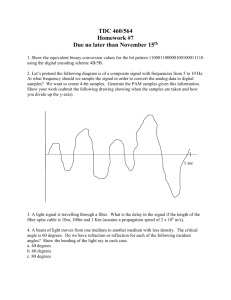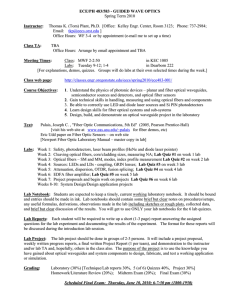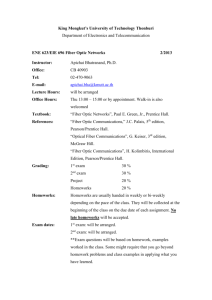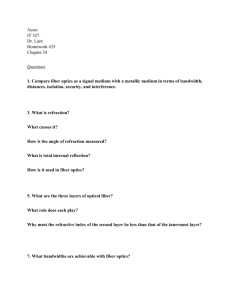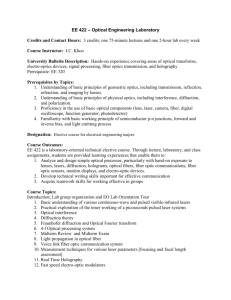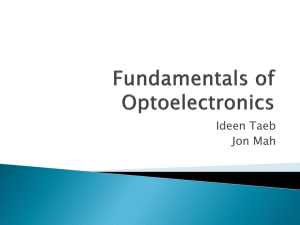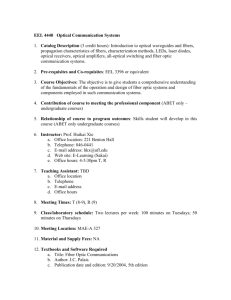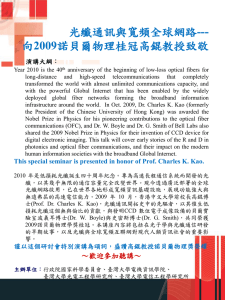Official Course Outline - Department of Electrical Engineering
advertisement
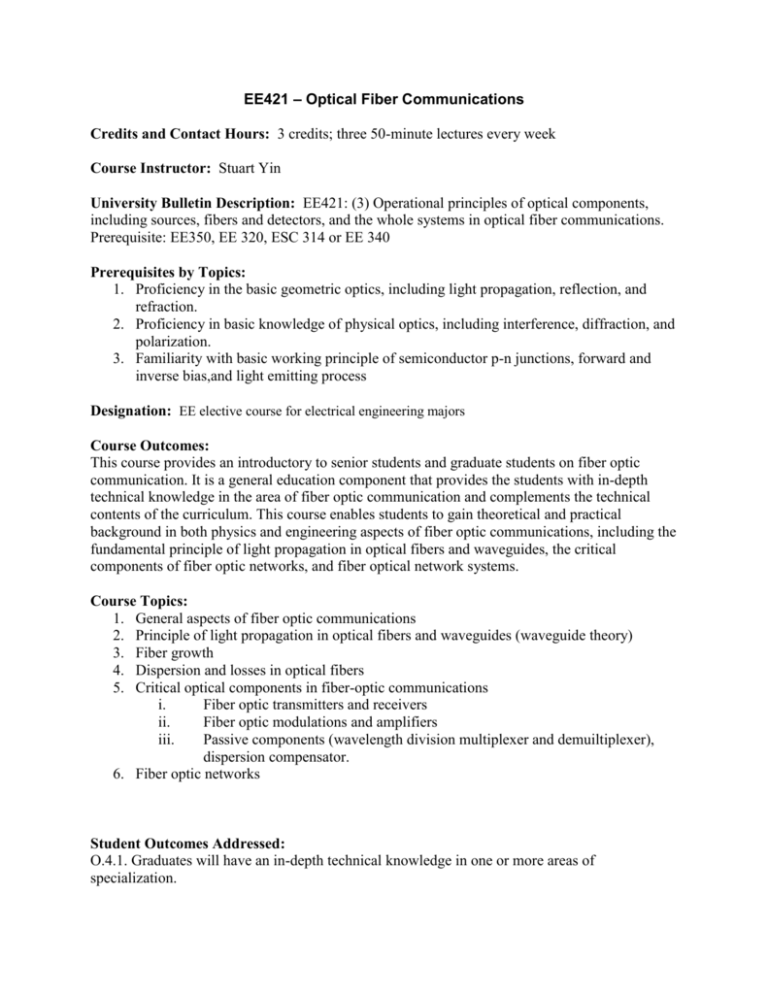
EE421 – Optical Fiber Communications Credits and Contact Hours: 3 credits; three 50-minute lectures every week Course Instructor: Stuart Yin University Bulletin Description: EE421: (3) Operational principles of optical components, including sources, fibers and detectors, and the whole systems in optical fiber communications. Prerequisite: EE350, EE 320, ESC 314 or EE 340 Prerequisites by Topics: 1. Proficiency in the basic geometric optics, including light propagation, reflection, and refraction. 2. Proficiency in basic knowledge of physical optics, including interference, diffraction, and polarization. 3. Familiarity with basic working principle of semiconductor p-n junctions, forward and inverse bias,and light emitting process Designation: EE elective course for electrical engineering majors Course Outcomes: This course provides an introductory to senior students and graduate students on fiber optic communication. It is a general education component that provides the students with in-depth technical knowledge in the area of fiber optic communication and complements the technical contents of the curriculum. This course enables students to gain theoretical and practical background in both physics and engineering aspects of fiber optic communications, including the fundamental principle of light propagation in optical fibers and waveguides, the critical components of fiber optic networks, and fiber optical network systems. Course Topics: 1. General aspects of fiber optic communications 2. Principle of light propagation in optical fibers and waveguides (waveguide theory) 3. Fiber growth 4. Dispersion and losses in optical fibers 5. Critical optical components in fiber-optic communications i. Fiber optic transmitters and receivers ii. Fiber optic modulations and amplifiers iii. Passive components (wavelength division multiplexer and demuiltiplexer), dispersion compensator. 6. Fiber optic networks Student Outcomes Addressed: O.4.1. Graduates will have an in-depth technical knowledge in one or more areas of specialization. O.4.2. Graduates will have a practical understanding of the major electrical engineering concepts and demonstrate application of their theoretical knowledge of the concepts.
